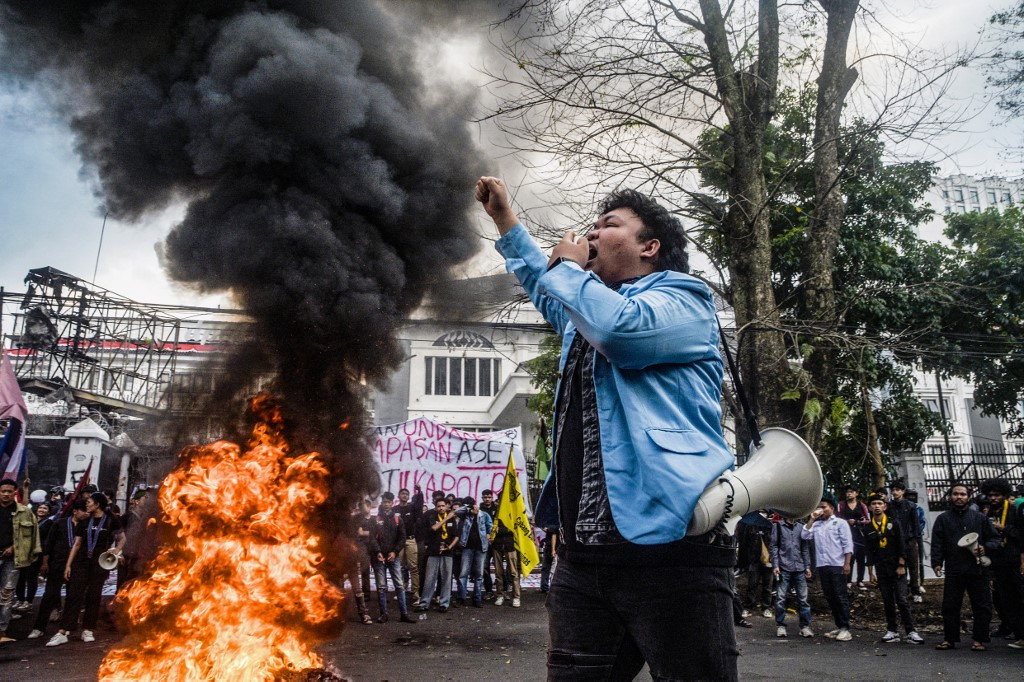Popular Reads
Top Results
Can't find what you're looking for?
View all search resultsPopular Reads
Top Results
Can't find what you're looking for?
View all search resultsPeople need dreams
It would be tempting to interpret the excessive increase in lawmakers’ housing allowance as the final straw that broke the camel’s back.
Change text size
Gift Premium Articles
to Anyone
A
s we reflect on last month’s vandalism, looting and mob attacks, it would be tempting to interpret the excessive increase in lawmakers’ housing allowance as the final straw that broke the camel’s back.
We could then admit that things have gotten out of hand a bit, promise to undo the perks “ASAP”, “crack down” on corruption and provide a “helping hand” to those in need.
We might also remind our elected officials, once more, to dispense with ostentatious displays of wealth.
Finally, we would appeal to everyone to keep the peace, and everything would be right as rain again.
But it is not that simple.
The eruption of violence shocked the country, because many failed to recognize how much pressure had been building beneath the surface.
Now we know that the perks were not the final straw. They were the match thrown onto the piled-up bales of straw.
A spark is only dangerous if there is flammable material around. In Indonesia, like in other countries, that material is a deep-seated sense of injustice. Unless properly addressed, even relatively minor issues can ignite social strife again.
Perhaps more than ever, the world is a rat race won by those adroit at spotting opportunities and adapting first to new trends and technology. Many are left behind because they lack resources, skills or shrewdness.
The fact that some are privileged enough to get a head start, such as through an expensive education abroad, only adds insult to injury.
GDP growth, the poverty rate and even the Gini coefficient for income distribution have all been moving in the right direction lately, for which the government deserves credit, but macroeconomic statistics will not mollify those who feel the system has failed them.
We have a problem as a society, as a country, when hard work alone is often unrewarding, so that many feel like the ladder of opportunity has been pulled up and they cannot even reach the bottom rung, no matter how much sweat and grit they put into it.
Being in a tight spot financially today is one thing, but for a young person to see themselves remaining in that place for the next six or seven decades, is quite another.
That sentiment, more than the self-entitlement of some lawmakers, is what saw buildings and vehicles torched in Jakarta and elsewhere.
That is no excuse for violence, but it is certainly a causal factor that should have been dealt with long before we got to this point.
The government is right to undo the allowance hike, but addressing that sense of hopelessness is much harder and will require structural changes to ensure upward mobility.
Employment is obviously a primary concern. While the official unemployment rate has dropped, millions of Indonesians are underemployed, including many of those who took to the streets last month.
Furthermore, almost 60 percent of Indonesian workers are employed in the informal sector, which generally means less job security and social security.
While it is easier said than done, the government must make formal hiring more appealing for employers while cracking down on firms that maintain informal work arrangements when they could be formalizing them.
That also means labor unions will need to take a step back and look at the bigger picture of society as a whole rather than focusing on their members, because the more demands we put on formal employment, the more businesses will try to get around it.
At the same time, the government must ensure some degree of equality of opportunity through the provision of free and high-quality education and public health care. State education must match that of private schools, so nobody has an undue starting advantage.
A wealth tax for the super-rich or higher taxes on luxury purchases might be the way to fund this.
People need dreams. When people have access to education, upskilling and work, they can start dreaming the Indonesian Dream again.











